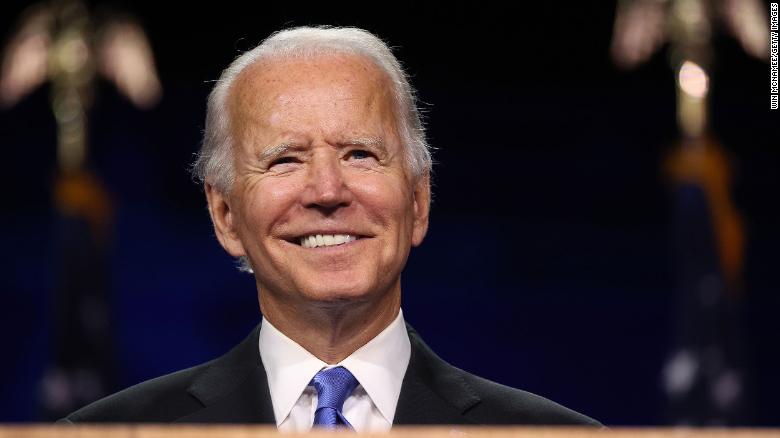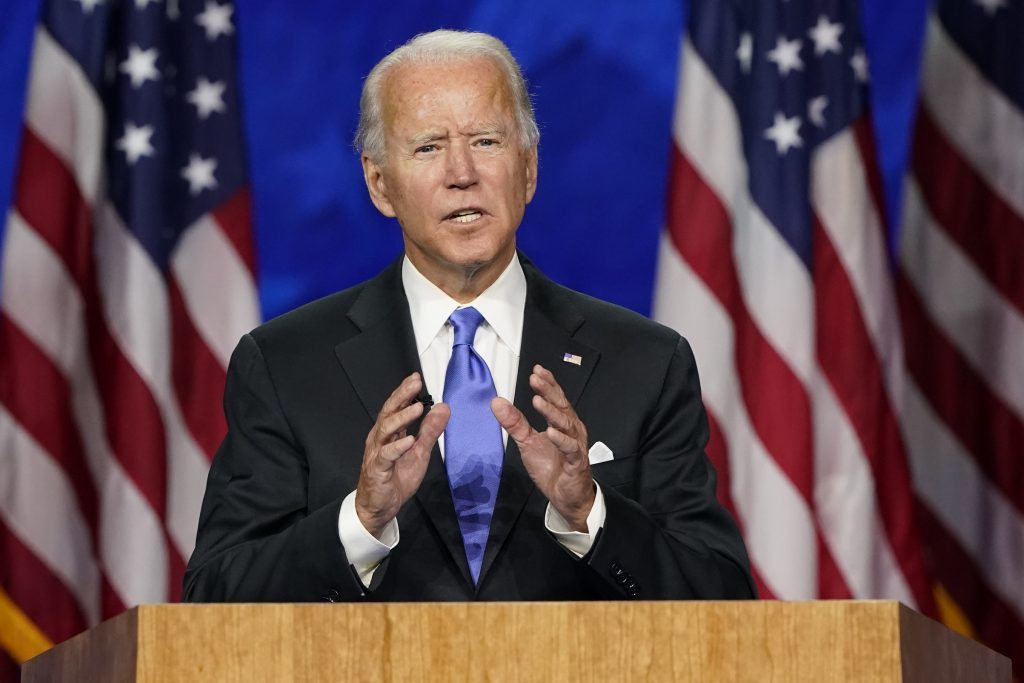Sorry, nothing in cart.
Joe Biden takes on Trump-era traumas in career-defining speechs
Joe Biden takes on Trump-era traumas in career-defining speech
If Joe Biden becomes the 46th American President, his speech accepting the Democratic presidential nomination on Thursday night will be seen as the moment when the destiny of a man and his nation converged.
In vowing to purge the fear, darkness and disease he sees personified by President Donald Trump with hope, love and light, the Democratic nominee elevated his front-running campaign with the speech of his life.
Trump and his campaign have been trying for months to smear Biden as a doddering, senile 77-year-old who is being controlled by nefarious left-wing forces in the Democratic Party. But his smooth performance made those attacks now seem like an expectations-lowering miscalculation.
It will become clear in November whether the Democratic vision spelled out at the convention — one of diversity, inclusion, empathy and vows to tackle difficult challenges like racism and climate change — will be embraced by voters in a deeply polarized America. The election will also show whether Biden and his team put sufficient focus on the economy — an area where Trump has enjoyed higher poll ratings than for many other policy aspects of his term.
In presidential politics, many successful challengers have made themselves the answer to the flaws in their predecessors. Throughout the night, Biden’s friends and allies presented him as the opposite of Trumpism: a man of character and decency who tries to understand the story of everyone he meets, a stark contrast to a man known for a splenetic, vengeful personality.
Biden turned 50-year political career, which would make him the oldest American President ever inaugurated for a first term, into a strength. He presented the seasons, reversals, comebacks and empathy distilled from the harrowing personal tragedies of a life in full as an antidote for a nation that is divided, sick and grieving.
“You’re not going to have law and order,” Trump said.
Biden — who has been running, or thinking about running for President for around 40 years — has always been the runner-up, the failed candidate, the archetypal senator known for gaffes. A man who got close to the Oval Office, but never close enough
That changed Thursday night, as he stood in darkness in Wilmington, Delaware, before walking to his lectern as the lights bathed him in light, stagecraft intended as a metaphor for his campaign’s main theme.
Biden was more confident, assured and purposeful than he has ever appeared in his public life. Apart from a few stumbles, his delivery was strong — with barely a trace of the stutter that he overcame as a boy. Biden’s work to overcome that stutter was movingly epitomized in a convention video by a 13-year-old from New Hampshire who he coached to do the same.
His voice broke only once, when he remembered his beloved son Beau, who died of brain cancer in 2015 but whose memory was threaded throughout the entire evening as a reminder of the family heartbreak his father has endured.
Biden has a deserved reputation as a windy rhetorician. But his speech on Thursday was clipped, layered in short punchy sentences that underscored what he views as the urgency to turn Trump out of office so the nation can more forcefully confront the pandemic.
In many ways, Biden, against a backdrop of American flags, spoke as though he was already president, deploying the body language and dignity of the office that Trump has spurned in order to stay true to the disdain for government that he has shown since the beginning of his upstart 2016 campaign.
Where Trump has obsessively rewarded his base, Biden — like a throwback to an earlier age — promised to be a president for all Americans.
Speaking directly into the camera as though he were addressing voters in their living rooms, he was in full command of his remarks, sustaining eye contact so it rarely looked as though he was reading the words off the teleprompter. He argued that America is engulfed in a “perfect storm” of four simultaneous crises: the worst pandemic in 100 years, the worst economic crisis since the Great Depression, the most compelling call for racial justice since the Civil Rights Era and the climate crisis.
“Our current President has failed in his most basic duty to the nation. He has failed to protect us, he has failed to protect America,” Biden said. “This is not a partisan moment. This must be an American moment.”
He called out the President’s naiveté about the coronavirus, while acknowledging that there is not easy way to stop the pandemic that has led to the deaths of some 170,000 people.
“The President keeps telling us the virus is going to disappear. He keeps waiting for a miracle,” Biden said. “Well, I have news for him: no miracle is coming. We lead the world in confirmed cases. We lead the world in deaths. Our economy is in tatters, with Black, Latino, Asian American and Native American communities bearing the brunt of it.”
“After all this time, the President still does not have a plan,” Biden continued. “Well, I do.”
Biden, who has long worn his Irish heritage on his sleeve, closed by quoting Nobel Prize Winning poet Seamus Heaney who wrote that once in a lifetime a “longed-for tidal wave of justice” can rise up when “hope and history rhyme.”
“This is our moment to make hope and history rhyme,” Biden said.
“For love is more powerful than hate. Hope is more powerful than fear. Light is more powerful than dark.”
“This is our moment. This is our mission.”



Leave a Reply